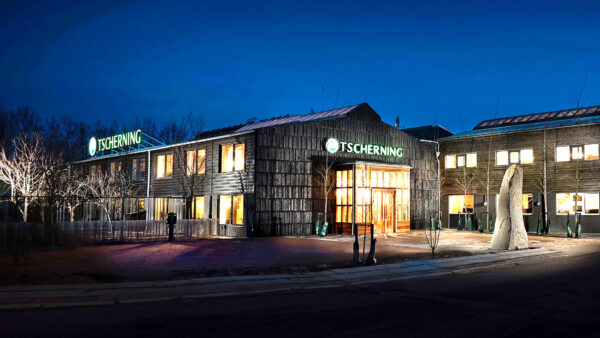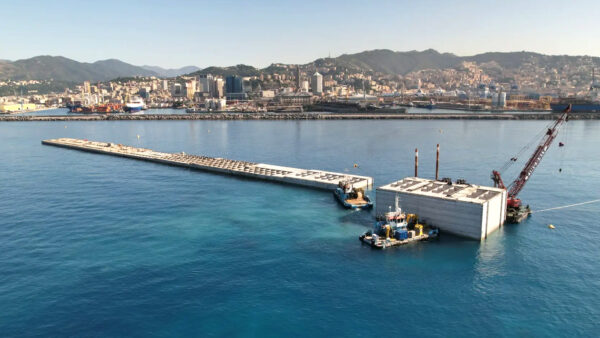The government of Lithuania is about to begin the search for a concessionaire to take over the country’s three international airports.
The one at Vilnius (pictured) is in particular need of expansion, but two others have real potential, says the agency in charge.
On the face of it, the prospects look good: the country is handily positioned between Scandinavia and eastern Europe, its airports have reported double-digit growth for the past five years or so, and the Lithuanian economy itself is one of the EU’s success stories.
On the other hand, airport deals of this type do not always go well, particularly in smaller countries: Kingston airport in Jamaica attracted no bidders last year, and last week (19 May) the Colombian National Infrastructure Agency announced that it had received no bidders for its concession.
The interesting thing is we have limited competition from Minsk, because it has quite limited connectivity, and it’s not open skies so we are getting quite a lot of people from Belorussia. Also northern Poland and southern Latvia and that’s a big catchment area– Gediminas Almantas, Lithuanian Airports chief executive
To find out what the prospects are for this deal, GCR talked with Gediminas Almantas, the chief executive of Lithuanian Airports, about what kind of bargain Lithuania wants to strike, and why operators might want to take it.
No shortage of bidders
The tender process is expected to last around 22 months – four to prepare the documents and 18 to conduct the negotiations.
Almantas is confident that European operators will be keen. “I’ve talked with at least five of the biggest operators in Europe and they’ve said ‘yes, we’re interested, we’re going to go for it’,” he said.
So far he has not tried to promote the scheme outside Europe, but he said he is sure that there will also be interest from Asian operators.
The green light from Lithuania’s parliament is expected shortly, and tender documentation should be ready by the end of September. “We’re not really rushing: it’s a new area for investors so we would like to give them enough time to really understand the market,” Almantas said. “It’s a bit different from a normal concession because the money is not the top priority.”
Facts on the ground
The three assets on offer are Vilnius, Kaunas and Palanga. Of these, Vilnius is profitable and popular, but its capacity is 3.5 million passengers a year, and last year it dealt with 3.3 million. A programme of capital investment is urgently required here.
Kaunas is much smaller (750,000) and would have difficulty surviving as a passenger terminal. Palanga is really for European tourists who want to visit Baltic resorts; it deals with 145,000 passengers a year.
Clearly, the first order of business for the winning concessionaire is to expand Vilnius, and Lithuanian Airports has an investment programme worked out.
It has been reported that the winning bidder would be expected to finance €216m ($240m) worth of capital works, but that figure may change, because it is based on Lithuania Airports succeeding in its application for EU structural funding of around €50m.
“If we do get that support, the investment stays as planned,” Almantas said.
“If we’re not getting it, which may also be the case because of state aid limitations and other issues, we should add another €50m roughly to the capex program.”
He adds that this is “quite a significant” investment project considering the short time of the concession – 25 years.
Most of that money is earmarked for Vilnius, and mostly on the landside. The terminal may be extended, or a second will be built. Not included in the concession deal is a €40m reconstruction of the runway, to start in 2017, which the new concessionaire can benefit from.
Why operators should bid
Almantas gives three main reasons why companies should bid to take over the airports, in addition to the annual concession fee.

Gediminas Almantas, the chief executive of Lithuanian Airports, at the opening of Vilnius’ Film Box service (Lithuanian Film)
He says: “Firstly, there is the commercial potential of the airports. Up to now, Lithuanian Airports has operated as a state enterprise that has had limited its ability to run as a commercial business; this means that there is lot of room to grow retail services.
“Then there is the fact that Lithuania is a very open market, as we don’t have a national carrier. What it does have is Lufthansa and seven star-alliance members and it looks like they are investing in the market and looking to maintain their position.
“Thirdly, we have enjoyed steady double-digit traffic growth over the past three years. The interesting thing is we have limited competition from Minsk, because it has quite limited connectivity, and it’s not open skies so we are getting quite a lot of people from Belorussia. Also northern Poland and southern Latvia and that’s a big catchment area.”
Missed connections
The lack of a national carrier for Lithuania may give the concessionaire more room to swing its elbows, but it may also be the reason why Vilnius has lost out to Riga, its bitter rival in neighbouring Latvia, over the past seven years: whereas Riga had 93 routes at the end of 2015, Vilnius only had 50.
Almantas says that this reflects the success of Baltic Air, the Latvian government’s flag carrier, in driving Riga airport’s business plan. Baltic Air also gained traffic by moving its routes from Vilnius to Riga; by contrast, Lithuania’s national carrier ceased operations in January 2009 after a privatisation went wrong.
So Lithuanian Airports needs an operator who, apart from being able to raise finance, really knows how the play the airport game, and will be able to increase the number of airlines and routes that operate out of Vilnius. This, says Almantas, is more important than maximising returns to the government.
To advise them on how to structure the concession deal to maximise the benefits for the country, Lithuanian Airports hired the Dutch consultancy InterVistas.
What do with Kaunas?
Kaunas, Lithuania’s second city, has an airport that is most supplied by low cost carriers. Lithuanian Airports’ plan is to develop it as a complementary facility to Vilnius, which is only about 100km away. So Kaunas would concentrate on cargo and MRO services (maintenance, repair and operation) for the aviation industry.
Almantas says Kaunas would also benefit from Rail Baltic, the project to build a high-speed rail connection between Berlin and the Baltic States, which is fairly close to the top of the EU’s to-do list in eastern Europe.
Kaunas will also be a cargo hub for air, rail and maritime, with both Russian and European gauge networks and an inland port.
Top image: Vilnius airport is nearing its capacity limit (Vilnius Airport)






